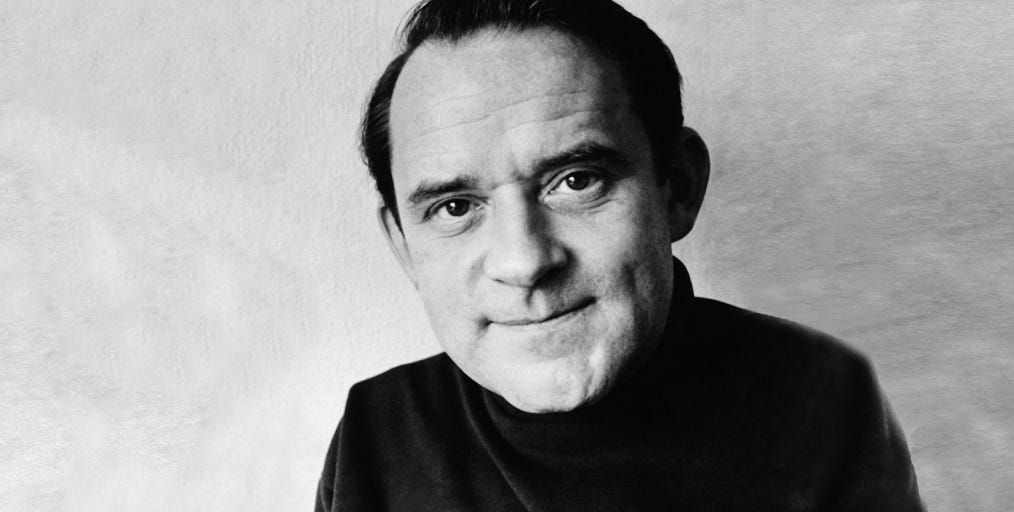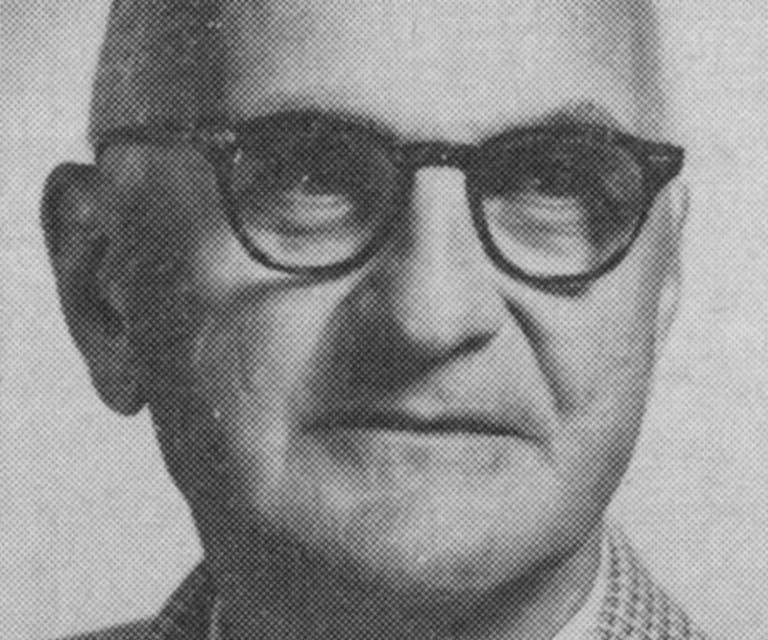Exposing CIA Experiments Targeting Children
Editor’s Note: This investigation was previously published by The Dissenter, a crusading independent, reader-funded outlet well worth your time, and consideration. It is now reproduced here following my investigation of April 14th - How CIA Created Modern Germany.
On January 26th 2022, The Dissenter exposed how the CIA funded unethical experiments on Danish orphans for at least two decades, from the early 1960s onwards. These grim trials were conducted as part of the Agency’s mind control program MKULTRA, which was secretly farmed out overseas as it wound down in the US, due to the threat of public exposure. A 1963 Agency Inspector General report explains why the operation was expanded worldwide:
“Termination of covert testing of MKULTRA materials on unwitting US citizens will [not] bring the program to a halt. Some testing on foreign nationals has been occurring under the present arrangements. Various US deep cover agents overseas would appear to be more favorably situated than the U.S. narcotics agents to perform realistic testing.”
As such, it’s reasonable, and vital, to ask where else in the world the CIA supported unethical human experiments on vulnerable and defenceless youths. West Germany, forged in May 1949 from the post-war military occupation zones of Britain, France, and the US, could be one place where MKULTRA continued untrammelled, in the most horrific manner imaginable.
Meet Helmut Kentler
At precisely the same time that CIA-directed psychological torment of Danish orphans was underway, authorities in West Berlin were dabbling with something even more diabolical - state-endorsed pedophilia. Psychologist Helmut Kentler advocated in the 1960s for placing vulnerable youths in the care of paedophiles, on the ostensible basis that “loving environments” would effectively integrate them into society. An influential figure, he used his extensive political connections to market his ideas directly to lawmakers and state institutions.
Kentler established the Pedagogical Center in February 1965, to conduct various tests and trials. The results were supposed to help educational authorities develop best practices for nurturing the nation’s youth. Fully endorsed by the city’s Senate and Social Democratic Party (SPD) and West Berlin Mayor Willy Brandt, the Center was granted a multi-million dollar budget, along with 37 staff. It was overseen by SPD Senator for Schools and Education Carl-Heinz Evers, who knew Kentler personally. Brandt later served as West German chancellor, 1969 - 1974.
Children in West Berlin were sent to live with paedophilic foster parents at Kentler’s direction, starting from 1969. Kentler’s ideas gained increased currency following incendiary student protests, which erupted across much of the Western world the previous year. These mass actions revitalised the writings of Austrian psychoanalyst Wilhelm Reich, in particular his early 1930s works The Sexual Struggle of Youth and The Mass Psychology of Fascism.
Reich theorised that suppression of sexuality went hand-in-hand with obedience to authoritarianism, given an individual’s perspectives and predispositions were formed during their formative years. It was therefore necessary for people of all ages to become sexualized, and embrace their sexuality.
The resurrection of Reich’s ideas was no doubt welcome to West Germany’s occupying powers. The notion Germans were psychologically and genetically disposed towards aggression and dictatorship, and German society should be drastically reordered to blunt these tendencies, was widespread in the aftermath of World War II.
Britain and the US accordingly pursued wide-ranging social engineering efforts to that end, throughout the Cold War. A key architect of these endeavours was Scottish-born psychiatrist Donald Ewen Cameron, who played a significant role in the Nuremberg trials. His work The Social Reorganization of Germany argued Germans were naturally inclined towards dictatorship, and this tendency was fostered during childhood. He went so far as to advocate restrictions on which Germans could have offspring as a result.
Cameron’s shaping of post-war West Germany is largely forgotten. He is by contrast notorious for his contributions to the MKULTRA program. He sought to create a real-life “Manchurian Candidate” for the CIA via various macabre means, such as forcing unwitting patients to listen to hours of audio messages while under the influence of drug cocktails. This technique left targets’ minds a “blank slate”, onto which new behaviours could be programmed - or so he hoped.
The monstrous technique was dubbed “psychic driving.” While it failed to produce remote-controlled humans, its “primary values” were said to be “penetration of defenses [and] elicitation of hitherto inaccessible material.” This may account for why Cameron’s methods of sensory deprivation and psychological torment were widely practised on Guantanamo Bay prisoners during Washington’s War on Terrorism.
CIA Involvement?
A June 2020 University of Hildesheim investigation of the Kentler experiments concluded that a “network” of state-level actors “tolerated, strengthened, and legitimised paedophile positions [and] also arranged and justified pedophilic assaults in foster homes, shared apartments and other care constellations.” These same individuals systematically covered up “physical, sexual, or emotional mistreatment of children.”
A fundamental component of this mephitic nexus was the SPD. The party dominated West Berlin’s assorted political bodies and local governmental departments at every level. A young boy housed with a paedophile in West Berlin has claimed the party’s local branch “deliberately selected” him for the experiment.
According to CIA whistleblower Philip Agee’s 1978 tell-all Dirty Work, Langley played a pivotal role in managing the SPD and shaping its policies throughout the Cold War. He claimed West Germany was “one of the most important operational areas for far-reaching CIA programs, designed to create an internal structure…which would be pro-American and anti-Communist, and to secure commercial interests”:
“The CIA supported not only the CDU (Christian Democratic Union), but also the SPD and the trade unions. The CIA wanted the influence of the two major political parties to be strong enough to shut out and hold down any Left opposition…[those] movements had to be discredited and destroyed.”
CIA units involved were “charged with special responsibilities for making contact with organisations and people within the political establishment,” such as the SPD and its elected representatives. “All information collected” was then used “to infiltrate and manipulate these organizations.” Did the CIA sanction if not outright encourage the Kentler experiments? Was Kentler a “US deep cover agent overseas,” in the CIA Inspector General report’s phrase?
Whatever the truth of the matter, that document also called for MKULTRA experiments to be conducted in dedicated operational settings, with strengthened “structure and controls.” Foster homes and orphanages may then have represented ideal environments from the CIA’s perspective. This seems to have been the case in Denmark, as its central population register meant experimented upon children could be tracked over many years.
At the very least, it strains credulity to believe the CIA was not well-aware of what Kentler advocated. Among the Pedagogical Center’s key founders and planning committee members was James B. Conant, the first US Ambassador to West Germany and adviser on educational issues in West Berlin from 1963-1965. He was invited to join the centre by Mayor Brandt, and the CIA-connected Ford Foundation.
A 1983 National Academy of Science obituary records Conant “played a critical role in rallying support for this project.” It eerily adds, “he unquestionably had an influence on adjustments that have been made in German education” since the country was carved into two halves.
Seeking Answers
It was not until several years after Kentler’s July 2008 death that his work and legacy was critically examined. Shockingly, multiple contemporary obituaries paid positive tribute to the psychologist. Berlin daily newspaper Tageszeitung, which avowedly provided a figurative soapbox and megaphone to paedophiles and pro-paedophile organisations, deemed Kentler a “meritorious fighter for a permissive sexual morality."
The University of Hildesheim’s probe represented the first truly extensive insight into Kentler’s experiments. It exposed how the established narrative of the psychologist’s work - that he sought to place at-risk youths in caring environments in the sincere but dangerously misguided hope it would be beneficial for them, and these trials were short-lived and limited in scope - was completely false. Nonetheless, this was for many years accepted and endorsed even by critical media outlets and academics.
Hildesheim's report showed facilitating sexual abuse of foster home residents was always Kentler’s primary objective, and the management of paedophile-run accommodations of this type continued until at least 2003. That year, the foster home of Fritz H (a pseudonym) was closed, having opened 30 years prior. During that time, 10 youths passed through its doors, some simultaneously. Fritz was said to have “constantly and proactively” looked for new foster subjects all along, in a manner that was “unusual”.
Two children who spent time in Fritz’s home “impressively” reconstructed their experiences to University investigators. They reported “opaque and incomprehensible procedures, massive experiences of violence and abuse in many instances, and [the] strong influence” of Kentler on the residence.
Among documents related to Fritz’s foster home, a “large number of strong signals in the record,” such as a psychologist’s report, proof of completed legal proceedings regarding child abduction and child sexual abuse, a critical assessment by the Health Office, and an autopsy after the unexplained death of a child in Fritz’s custody, were identified. All of this should have prompted officials to critically reassess his suitability as a foster parent.
Instead, Fritz was regarded as a “robust and immune figure,” and the West Berlin Youth Welfare Office even defended him. There is no reason to believe he was alone. West Germany was dotted with shared paedophile-run accommodations, where “sexual transgressions and assaults took place” for decades throughout the Cold War. West Berlin was even at one stage home to a “radical” all-female paedophile commune, with links to the Green party.
Another victim interviewed by the University was placed in a foster home run by West Berlin’s District Office in the early 1980s. He testified to his adoptive father’s “sexual transgressions and assaults,” child pornographic material he found in the man’s possessions, and letters he wrote to authorities about the monstrous conditions in which he lived. No action was taken.
Those tasked with administering these vile experiments were allowed to commit awful crimes against vulnerable children for many decades. They benefited from a strict code of silence on the part of officials. A similar dynamic existed in Denmark, where authorities shredded records related to CIA experiments on orphans after learning the criminal conspiracy was finally being scrutinised by outsiders, decades after the fact.
The need for potential CIA connections to the Kentler scandal to be independently investigated is urgent, and obvious. In fact, all European countries should work to uncover which abusive experiments or programs involving children were supported by the Agency during the Cold War.
All my investigations are free to read, thanks to the generosity of my readers. Independent journalism nonetheless requires investment, so if you took value from this article or any others, please consider sharing, or even becoming a paid subscriber. Your support is always gratefully received, and will never be forgotten.





Great work. Public service. Real journalism. 🖖
There is an execrable MKULTRA-pilled family tree of child abuse that keeps growing. Thinking of the use made of indigenous children in NZ from the 60s to the 80s at the Lake Alice 'care' home, where Dr Leeks used Dr Cameron-linked deep sleep techniques combined with shock treatment on Māori children, combining punishment with barbaric experimentation (NZ Stuff podcast 'The Lake'). The troubled teen industry is also linked (True Anon podcast 'The Game: The Story of Synanon') - this seems to be a very dark, hugely exploitative development, beginning to be exposed, very grim.